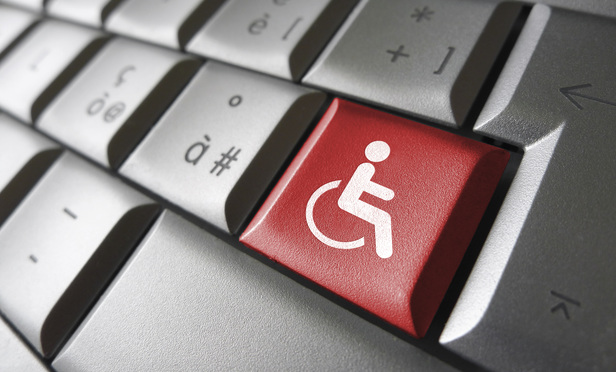The Americans with Disabilities Act (ADA) not only protects qualified disabled individuals in the workplace who can perform the essential functions of their jobs with or without reasonable accommodations, it also extends coverage in Title III to all “places of public accommodation.” Historically, aggrieved plaintiffs pursuing claims under Title III focused their efforts on “brick and mortar” places of public accommodation, such as retail establishments and the hospitality industry, to force the removal of physical barriers and ensure that disabled individuals enjoy equal opportunities to use facilities in the same manner as nondisabled individuals. Whether it was a lack of parking spaces for the disabled, or restrooms and bathrooms that did not accommodate the disabled, the courts were flooded with claims demanding remediation and compensation. Most cases were quickly resolved, given the detailed remediation guidelines and building codes that exist.
Today, that litigious focus has shifted to another “place of public accommodation”—public websites utilized by these brick-and-mortar entities to conduct business, as well as those that exist only in cyberspace. The American Bar Association recently stated, “Most websites are noncompliant with the ADA.” In fact, as of this writing, some 60-70 “web accessibility” lawsuits are pending in federal courts across the country. The difference with these lawsuits is that there are no guidelines as to what constitutes an accessible website in the private sector. Nonetheless, the U.S. Department of Justice, which enforces Title III of the ADA, has been very aggressive in targeting private employers and industries with inaccessible websites.
This content has been archived. It is available through our partners, LexisNexis® and Bloomberg Law.
To view this content, please continue to their sites.
Not a Lexis Subscriber?
Subscribe Now
Not a Bloomberg Law Subscriber?
Subscribe Now
LexisNexis® and Bloomberg Law are third party online distributors of the broad collection of current and archived versions of ALM's legal news publications. LexisNexis® and Bloomberg Law customers are able to access and use ALM's content, including content from the National Law Journal, The American Lawyer, Legaltech News, The New York Law Journal, and Corporate Counsel, as well as other sources of legal information.
For questions call 1-877-256-2472 or contact us at [email protected]






